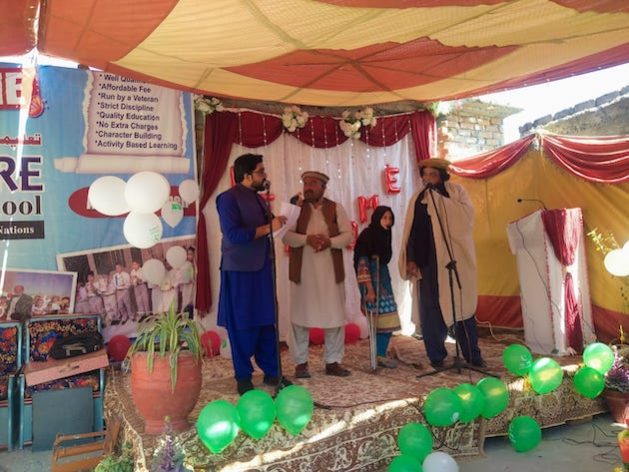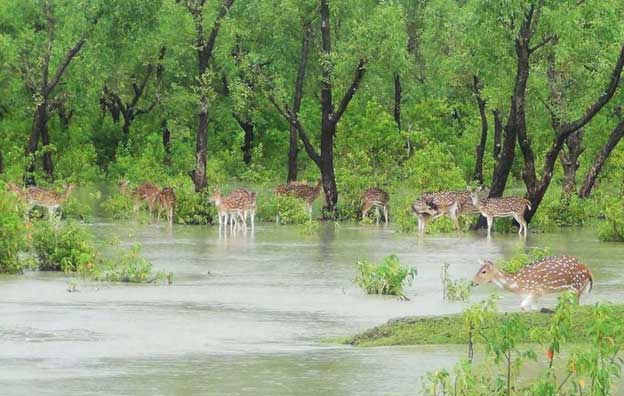Theatre Used to Dispel Polio Immunisation Myths in Pakistan — Global Issues
PESHAWAR, May 05 (IPS) – Pakistan, one of two polio-endemic countries in the world, has started staging theatrical dramas to promote immunisation in an attempt to encourage parents who refuse to allow their children to be vaccinated.
“Pakistan recorded 20 polio cases in 2022 and has detected one infected child this year. Most of the diagnosed polio kids haven’t been vaccinated mainly reluctance by the parents against oral polio vaccine,” Dr Jamshed Khan, a medical officer in Lakki Marwat district, told IPS. This region reported the first case in 2023.
Khan said the virus was identified in Pashto-speaking districts of Khyber Pakhtunkhwa. Now the medical teams are looking at different strategies to counter opposition to immunisation and inoculate all target kids to eradicate the crippling disease.
In 2022, all 20 polio cases were reported from three districts in Khyber Pakhtunkhwa, one of Pakistan’s four provinces. He said most cases were identified on unvaccinated or partially vaccinated children.
Parents’ hesitancy to administer vaccines to their wards is based on unfounded propaganda that polio drops were a ploy used by Western countries to render recipients impotent and infertile and cut down the population of Muslims.
Khyber Pakhtunkhwa province has been trying innovative approaches to tackle the increasing incidents of refusals due to misconceptions and creating demand for vaccination.
The latest in the series is holding theatrical events to do away with parents’ hesitancy against polio immunisation and protect the kids. Theatres organised in collaboration with the VOA Deewa (Pashto) service aim to convey that vaccination was to safeguard children and prevent disabilities.
“Today, we got a very positive message about vaccination. The drops administered to the children have been approved by the government and the World Health Organisation, are safe for human consumption,” Farman Ali, 16, a 10th grader in Swat district.
Ali, who attended theatre in his school in Swat, where viruses have been found in sewerage water, said that formerly he was opposed to inoculation, but now he wants to scale up awareness about the significance of vaccination in his neighbourhood.
“Prior to Swat, we have also held dramas in other districts. The impact of that is encouraging as the parents who previously refused drops are now willing to allow immunisation of their kids,” writer Noorul Bashar Naveed said.
“During the dramas, we show the people to the audience who had got disabilities due to non-vaccination and prevail upon them that immunisation is significant to protect their kids from preventable diseases,” Naveed said. “We aimed to promote vaccination among students and highlight the role of teachers as spiritual parents in mobilising students and society in general about the significance of essential immunisation, including polio, to prevent the spread of infectious diseases.”
Pakistan has been administering polio shots to 35 million children every year in four door-to-door campaigns, but 500,000 missed the drops due to hesitancy by parents.
Noted actors of the Khyber Pakhtunkhwa perform The Journey of Hope.
These senior artists perform the roles of teachers, students, vaccinators and affected kids who warn the parents against refusals, Naveed said.
Vaccination benefits children, and parents must fulfil their religious and moral obligation by vaccinating them against all preventable diseases.
“We have tried our level best to brush aside all misconceptions and myths about vaccination and pave the way for smooth sailing of the immunisation,” he said.
The plays include messages from religious scholars that according to Islam, the parents are bound to safeguard children against diseases, Naveed added.
A Grade 9 student, Muhammad Qabil, said that after watching the theatre, he was confident that many people who staunchly opposed vaccination would now opt for giving drops to their kids below five years.
“Before attending the theatre, I was against immunisation and thought that it was a tool by the Western countries against Muslims, but that was incorrect,” he said. Qabil said he had heard from religious scholars that vaccination was in accordance with Islam.
Dr Rashid Khan, a child health expert, said that the plays with strong performances by professional actors with powerful dialogues, script and background music keep the participants engaged for two hours, during which the focus remains on the significance of immunisation.
Khan said that Pakistan is also coordinating with neighbouring Afghanistan, another endemic country, to ensure the immunisation of children crossing the border.
Afghanistan, which reported two cases last year, is inoculating 9 million children, with less than 1 percent unimmunised due to refusals or hard-to-reach children.
Polio has been virtually eliminated globally through a decades-long inoculation drive, but insecurity, inaccessible terrain, mass displacement and suspicion of outside interference have hampered mass vaccination in Afghanistan and some areas of Pakistan.
Nek Wali Shah Momin, director of Afghanistan’s National Emergency Operation Center (EOC) for Polio Eradication, told IPS said many more areas could now be reached since the Taliban took over and the fighting stopped.
“Taliban are very cooperative and want to eliminate polio,” he said.
IPS UN Bureau Report
© Inter Press Service (2023) — All Rights ReservedOriginal source: Inter Press Service
Check out our Latest News and Follow us at Facebook
Original Source






